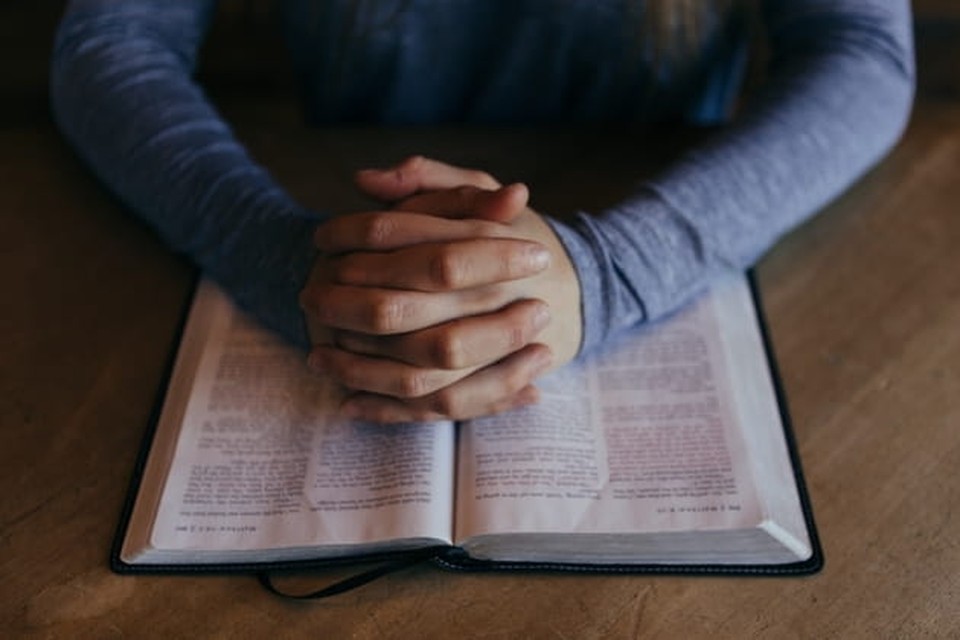The Different Types of Fasts

Deciding what to abstain from is one of the choices you must make when preparing to fast. The other is about the type of fast you will undertake. Will you be fasting privately or with a group? For how long will you fast? Most of my fasts are private, extended water-only fasts. This is the most demanding type of fast and is therefore likely to be the most effective. However, it will take most people quite some time to work up to this; and many will never take on this type of fast. In this chapter we will look at the various types of fasts you can undertake.
Occasional Short Fasts
This is where most people start. Whether denying yourself food or some other pleasure, an occasional fast that lasts six, twelve, or twenty-four hours is the most manageable. Nevertheless, you must treat it with the same sincerity as a longer fast. It is not insignificant just because it is short. But it does allow you to move gently into the discipline and to let the Lord instruct you. You are not necessarily making a commitment to do this type of fast again, as it is a one-time fast for a specific purpose.
Once you have decided what you are abstaining from you will be able to plan accordingly. If you are fasting from chocolate, then plan ahead so there is no chocolate in the house. Giving it away may be sacrifice enough! If you are abstaining from TV, then pull the plug out of the wall and put a cloth over the screen. You must get serious, even if only for a brief, occasional fast.
If you are doing a short water-only fast, don't presume that it will be easy. Some people are shocked when they first abstain from food. Your blood sugar level may drop and your instinct will be to rush for a chocolate bar. But then you will remember that you are supposed to be fasting, though I have known people who have impulsively eaten before realizing what they were doing. Such an outcome can be discouraging; but do not despair; things will change once you get into the rhythm of fasting. Another temptation is to binge during the meal before or after a fast. Both are equally unacceptable!
One of the reasons we fast is to discern God's voice in our life, for his direction. Need some help in discerning God's voice in your life right now? Download your FREE 30-Day Prayer Guide to help you discover his direction for you today.
Intermittent Fasts
This is normally a regular act of abstinence, for example one day a week. You may abstain from food, or make some other sacrifice. This type of fast is a way of integrating the spiritual discipline of fasting into your life on an ongoing basis.
Some people might contend they are on an intermittent fast, perhaps abstaining one day a week from high-caffeine drinks, while knowing that in fact they really need to stop drinking so many of these beverages every day. Where is the pain or gain in abstaining for just one day a week? Others exercise instead of eating lunch, but thoroughly enjoy it. So where is the abstinence?
If a person is addicted to buying romance novels or music CDs, then to "fast" for one week every month might be a real jolt. Likewise, if you max out a bunch of credit cards on designer clothing, then you need to stop what you're doing—not just "fast." Be wise in your choice of what to abstain from, and be honest. An intermittent fast will be just as sacrificial as any other type, if you have chosen wisely.
I used to fast one meal every day: I would eat a good breakfast, then eat only fruit for lunch, then eat again in the evening. I did this for several years while in college. Another option is to follow the Catholic tradition of eating a reduced diet one day a week as a way of fasting. Some churches have a regular monthly day of prayer and fasting.
Partial fasts (denying yourself one or more specific foods) are useful because they help you establish a routine. Those close to you accept it as well. Such intermittent partial fasts are also the type of fast you might commit to if, as a group, you were undertaking a round-the-clock fast. Each of you commit to fast for a specific period on a rotating basis, so that there is always one person fasting. We have done this a number of times in our church, ministry, and business, often describing it as a "24/7 fast."
Longer Fasts
Longer fasts likewise can take the form of abstinence from food or some other sacrifice. Some good options for a non-food fast would be abstaining from watching TV from Monday to Friday, reading a biography of a great man or woman of God each week, or dedicating every evening for a week to praying with friends. Other things may need to get cancelled in order for you to do this.
A longer water-only fast might last from one to three days. If you are fasting from something other than food, your longer fast might last a week. Some use Lent as a time for a longer fast. Going through caffeine withdrawal by not drinking coffee or tea or eating chocolate could be a good Lenten fast. Or you could spend every evening reading Scripture rather than watching TV or DVDs. Abstaining from driving your car by traveling to work with someone else might be an appropriate sacrifice.
What is most significant about such fasts is their potential to change your lifestyle. A friend of mine encountered a huge battle when he committed to getting up half an hour earlier each day to spend time in prayer. He quickly found all kinds of reasons why he couldn't do it, until we sat down and began unpacking the obstacles. A year later he was still enjoying this time with the Lord, having moved on from the abstinence stage.
Extended Fasts
This is the hard path of fasting—choosing to give up something that you need or value for an extended period of time. One non-food extended fast would be to get up an hour earlier each day for a month in order to pray, worship, or read Scripture or a Christian book. Such a move can revolutionize our lives. To do this, we should also go to bed earlier.
In referring to "extended fasts" I am deliberately being vague. It isn't possible or even helpful to suggest a time period for an extended fast. The length of time will vary from one person to the next and will probably also increase as your experience of fasting grows. I would not recommend that you begin fasting with extended fasts.
Water-only extended fasts must be approached with particular care. This is discussed extensively later in the book, so I won't go into detail here.
Open-ended Fasts
Some extended fasts are open-ended, for example, where you make a commitment not to break your fast until your goals have been achieved. Defining your goals is particularly important here. Again, this type of fast should not be considered until you have gained some experience. You must be particularly cautious if you are doing a water-only, open-ended fast.
Non-food fasts are also a possibility with this kind of fasting. One person I know woke early to study Hebrew for an hour each weekday, while another stopped at a parking lot on his way to work to spend time with the Lord. But in terms of their effects on a person, these types of open-ended fasts can't be compared to the open-ended water-only fast. Don't even think about this kind of fast until you have a proven track record and know what you are committing to.
Occasional Group Fasts
Most of my extended fasts have been private. But I have also participated in many group fasts. Such fasts can be called by a church or a group of churches or, on a larger scale, even to a nation during a time of crisis. Alternately, such fasts can be called by a small group or even by a Christian business. With the right leadership, calling groups to prayer and fasting can be a very powerful tool.
I must confess that I have a problem with some group fasts in that you fast, then you break the fast, then you get on with your life, and then you are frequently unable to measure whether you achieved anything. Group fasts can be a helpful way of introducing the discipline of fasting, but perhaps they could be better constructed so that one is able to measure the benefits. For instance, the group might agree on a sum of money that is needed and declare that openly as the goal. Or they might seek a person's healing, being specific about what they are asking of the Lord. This will help encourage more fasting. There will always be some benefits, even if it is merely that the faith community did something together. Set clear goals and live by them (see also the discussion of goals in chapter eight).
There are times when it is helpful for groups to fast together, such as when a congregation is going through difficult times or a mission organization needs to see a substantial breakthrough. In the history of the church there has always been a significant place for fasting together in groups. It is encouraging to be part of a team, as well as the wider body of Christ. National fasts, priestly fasts (i.e., those called by a priest or a leader of a faith community), tribal fasts (as in the Old Testament where an extended family or clan stand together), or family fasts can all carry a great deal of weight. Fasting can be a powerful form of intercessory prayer.
A significant blessing lies in the preparation itself for the community or group to do a fast. I have prepared groups in this way a number of times, and this book is the result of my having written notes for such training years ago. One should be careful not to expect too much too soon from the group, however. You also need to make sure that folks do not get caught up in a group fast when they are not ready to begin fasting.
On the other hand, such fasts can be a very good introduction to fasting for those who have never done it before. They discover the challenges and benefits of fasting in a supportive way. Many people never would have thought of fasting had they not first been part of a group where they discovered the power of fasting.
Longer Group Fasts
The range of options for a group fast is extensive. Are you all going to fast at the same time, or are you setting up a rotation? If you are going to do a water-only fast, are there some who need to do a partial fast for health reasons? Is this an open-ended fast until a goal is achieved, or are you fasting for a specifically defined period? These factors must be carefully considered so that the fast is effective and no one feels excluded, but also so that no damage is done to anyone's health. Pastoral support should be available, especially for those who have not fasted before.
When we did our first workshops in Rwanda in 2006, our church set up a rotation of two people fasting (water-only) for twenty-four hours at a time. This was clearly a significant part of the success of the trip.
You might want to practice various kinds of abstinence in a group setting. For instance, one person might abstain from watching TV, another might go without coffee, and another might get up an hour early to pray. But you commit to the fast together and report back to each other on your progress and battles.
If the group is abstaining from various things, it is important to know what each person is agreeing to do. Write this information down and see that everyone has a copy of it. Make sure that all are honored, regardless of their chosen type of fast. In setting goals, outline the conditions for ending the fast so that everyone is aware of what they are aiming at and what is to happen as they end the fast.
An extended or open-ended group fast is particularly demanding. I have been involved in such an undertaking several times: for example, to intercede for financial provision or for healing for a member of the church injured in a car accident. If there are, say, seven of you fasting, each of you might commit to fasting one day a week and assume that would not be too demanding. But beware—fasting one day a week for six months will drain you significantly, not because of the physical demands but because of the spiritual exhaustion caused by the battle you are engaging.
Long-term fasts need to be well regulated. Goals need to be set precisely and owned by everyone who wants to be involved. The group needs to stay connected either by meeting together in person or by communicating via the Internet. Also, the leader of the group must be fully satisfied that none of those participating will be harmed by fasting. If you have doubts about some individuals, then suggest they check with their doctor first.
Be aware that asking a whole group to fast can be difficult, as I found once when my business was in trouble and all the directors began a fasting rotation. In some cases the lack of food can impact both performance and temperament! But I know of no better way than group fasts to introduce someone to the power of fasting.
Excerpted from Dr. Peter Holme's The Fasting Journey (Authentic Publishing, 2009). Copyright 2009 Dr. Peter Holme's. Used with permission. All rights reserved.
Originally published February 16, 2010.





